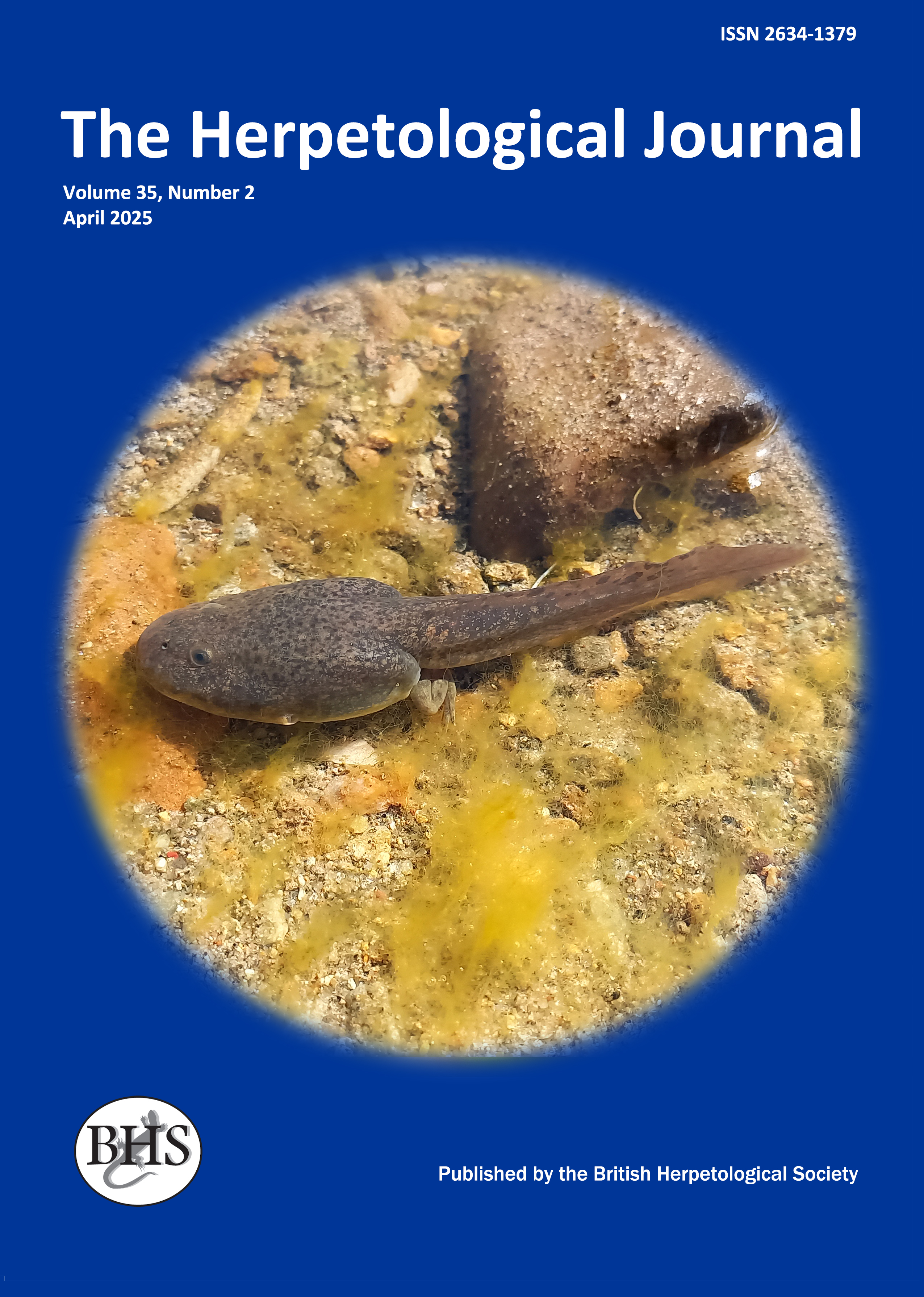
The Herpetological Journal
The Herpetological Journal is the Society's prestigious quarterly scientific journal. Articles are listed in Biological Abstracts, Current Awareness in Biological Sciences,Current Contents, Science Citation Index, and Zoological Record.
ISSN 0268-0130
2021 Impact Factor from Clarivate for the Herpetological Journal is 1.194, an increase of 0.332 from 2020.
pdf 09. Characterization of nine polymorphic microsatellite loci in the dyeing poison frog Dendrobates tinctorius (Dendrobatidae), and their cross-species utility in two other dendrobatoid species
961 downloads
Open Access
pp. 263-265
Authors: Ringler, Eva; Rojas, Bibiana; Ringler, Max & Hödl, Walter
Abstract: While field and laboratory based studies have provided significant insights into the parental care and courtship behaviour of dendrobatoid frogs, a comprehensive assessment of their genetic mating systems and population genetic parameters has been precluded because of the lack of highly variable DNA markers. Here we document the development of nine novel polymorphic microsatellite markers for the dyeing poison frog Dendrobates tinctorius (Dendrobatidae). We found between three and 16 alleles per locus in 60 individuals (30 males, 30 females) from the field site Saut Pararé, French Guiana, with an average observed heterozygosity of 0.75. None of the loci deviated significantly from Hardy–Weinberg equilibrium or showed linkage disequilibrium. We also report successful cross-species amplification of the nine markers in two other dendrobatoid species (Allobates femoralis and Oophaga pumilio). These markers have the potential to aid in determining the genetic structure of local populations, identifying small-scale phylogenies such as parent-offspring relationships and will allow for cross-species comparisons within dendrobatoid species. Therefore, these markers can be applied to a wide range of scientific fields, such as conservation, behavioural ecology and evolutionary biology.
Keywords: MICROSATELLITE MARKER, DENDROBATES TINCTORIUS, DENDROBATIDAE, CROSS-SPECIES AMPLIFICATION, POLYMORPHIC

